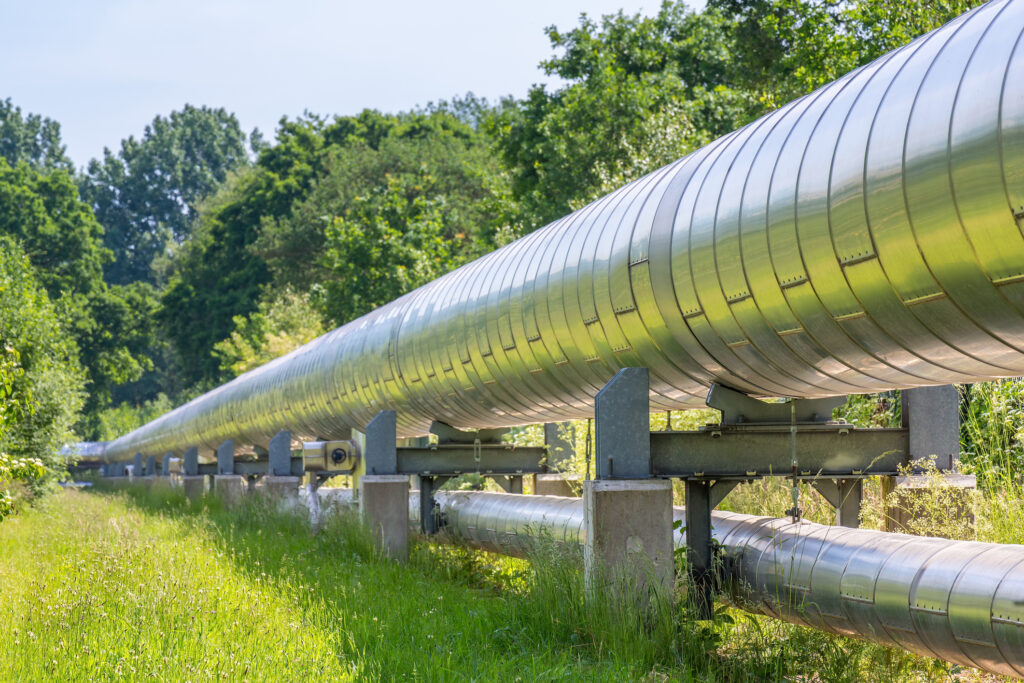A new Heartland Institute Policy Brief details how the expansion of mining operations for the rare earth minerals needed to scale up “renewable” energy sources to meet the goals of the “Green New Deal” (GND) would cause significant global environmental devastation.
In “How the Green New Deal’s Renewable Energy Mining Would Harm Humans and the Environment,” author Paul Driessen explains how if the GND were enacted, an attempt would be made to replace all electricity generation in the United States from fossil fuel and nuclear sources with that generated from wind or solar sources. To replace all these sources, Driessen makes a “conservative” estimate that almost 19 billion solar panels would need to be constructed and installed, covering an area roughly the size of New York and Vermont combined. He also cites a study from researchers at Harvard University that estimates the amount of land needed to power the country by wind energy would be equal to roughly a third of the continental United States.
To dramatically ramp up wind and solar electricity generation to this extent would “necessitate an unprecedented worldwide expansion in mining,” says Driessen. “And those mining operations would rely primarily on fossil-fuel-powered heavy equipment, since battery-powered equipment for enormous industrial operations does not exist.”
These mining operations would also involve “removing and crushing hundreds of billions of tons of rock and ore, causing major habitat losses and widespread pollution,” according to Driessen. “It would also create serious human health impacts, especially in countries that do not have modern equipment and health and safety protections.”
Among these mining operation would be those for rare earth elements (REE) such as dysprosium, indium, neodymium, and tellurium, which are necessary to produce wind turbines or photovoltaic solar panels. However, mining a single ton of these REEs, according to Driessen, produces up to 420,000 cubic feet of toxic gases, 2,600 cubic feet of acidic wastewater, and a ton of radioactive waste. More than 70 percent of the world’s REEs are either mined in China, a totalitarian communist dictatorship with a dismal environmental and human rights record, or by companies under the control of the Chinese Communist Party.
Other materials needed to be mined to produce solar panels and wind turbines, as well as to produce the anticipated battery backups systems for these “renewable” sources, include lithium, cobalt, and copper. To store a week’s worth of electricity for the entire country when wind and solar aren’t generating it, Driessen estimates would require “two billion half-ton battery packs similar to those used in Tesla automobiles.” Each of these batteries would require at least 26 pounds of lithium.
The cobalt needed for these batteries is mostly mined in the Democratic Republic of Congo, where more than 40,000 children currently labor in mining operations for pittance wages in unsafe and unhealthy conditions. Copper mining would also have to be dramatically expanded to meet this new GND demand, even though it takes roughly 125,000 pounds of mined, crushed, and refined ore to produce 1,000 pounds of finished copper.
Although the United States has proven reserves of these commodities, environmental policy at both the state and federal level have closed off most of these deposits from mining. Therefore, Driessen argues, enacting the GND would increase our dependence for these minerals on China and “other countries that regularly disregard workplace safety, child labor concerns, land reclamation, and pollution controls.”
“Wind and sunshine are certainly clean and renewable energy sources but,” Driessen concludes, “the technologies required to harness these intermittent, weather-dependent energies to benefit humanity require raw materials and mining operations that are anything but clean, ‘green,’ renewable, sustainable, or ethical. This fundamental reality can no longer be ignored. GND technologies rely heavily on mineral extraction in someone else’s backyard, often in less-developed countries, where other people and their children do the dirty, dangerous work of providing essential raw materials while suffering from environmental and human degradation.”
The following documents provide more information on the Green New Deal and “renewable energy.”
Policy Brief: How the Green New Deal’s Renewable Energy Mining Would Harm Humans and the Environment
https://heartland.org/wp-content/uploads/documents/PBdriessenmining2Apr20.pdf
In this Heartland Institute Policy Brief, Paul Driessen, senior policy advisor with the Committee For a Constructive Tomorrow, argues expanding mining on the scale needed to meet the renewable energy requirements contained in the Green New Deal and other proposed renewable energy mandates would cause unimaginable harm to the environment, wildlife, and humans.
Policy Brief: Protecting the Environment from the Green New Deal
https://heartland.org/wp-content/uploads/documents/EnviHarmsPB.pdf
This Heartland Policy Brief by Paul Driessen, senior policy advisor with the Committee for a Constructive Tomorrow, reviews the largely ignored environmental damage that would result from the expanded use of renewable energy mandated under the Green New Deal.
Policy Brief: The Green New Deal: A Grave Threat to the American Economy, Environment, and Freedom
https://heartland.org/wp-content/uploads/documents/GreenNewDealPB.pdf
The Heartland Policy Brief argues the Green New Deal is a dangerous combination of environmental extremism and socialism. The tremendously expensive proposal would devastate the U.S. economy and cause more environmental destruction than protection. The provisions of the Green New Deal pose a dangerous threat to the American values of individual freedom and limited government.
The 100 Percent Renewable Energy Myth
https://www.instituteforenergyresearch.org/wp-content/uploads/2019/02/Renewable-Myth-Policy-Brief219.pdf
This Policy Brief from the Institute for Energy Research argues that a countrywide 100 percent renewable plan would put the U.S. economy in jeopardy. The brief investigates the intermittency, land requirements, capacity factors, and cost of transition and construction materials that limit the ability of the U.S. to adapt to 100 percent renewable energy.
The U.S. Leads the World in Clean Air: The Case for Environmental Optimism
https://files.texaspolicy.com/uploads/2018/11/27165514/2018-11-RR-US-Leads-the-World-in-Clean-Air-ACEE-White.pdf
This paper from the Texas Public Policy Foundation examines how the United States achieved robust economic growth while dramatically reducing emissions of air pollutants. The paper states that these achievements should be celebrated as a public policy success story, but instead the prevailing narrative among political and environmental leaders is one of environmental decline that can only be reversed with a more stringent regulatory approach. The paper urges for the data to be considered and applied to the narrative.
The Social Benefits of Fossil Fuels
https://heartland.org/publications-resources/publications/the-social-benefits-of-fossil-fuels
This Heartland Policy Brief by Joseph Bast and Peter Ferrara documents the many benefits from the historic and still ongoing use of fossil fuels. Fossil fuels are lifting billions of people out of poverty, reducing all the negative effects of poverty on human health, and vastly improving human well-being and safety by powering labor-saving and life-protecting technologies, such as air conditioning, modern medicine, and cars and trucks. They are dramatically increasing the quantity of food humans produce and improving the reliability of the food supply, directly benefiting human health. Further, fossil fuel emissions are possibly contributing to a “Greening of the Earth,” benefiting all the plants and wildlife on the planet.
Climate Change Reconsidered II: Fossil Fuels – Summary for Policymakers
https://heartland.org/publications-resources/publications/climate-change-reconsidered-ii-fossil-fuels—summary-for-policymakers
In this fifth volume of the Climate Change Reconsidered series, 117 scientists, economists, and other experts assess the costs and benefits of the use of fossil fuels by reviewing scientific and economic literature on organic chemistry, climate science, public health, economic history, human security, and theoretical studies based on integrated assessment models and cost-benefit analysis.





